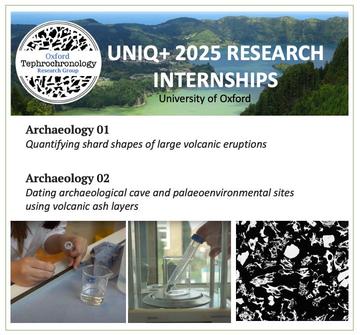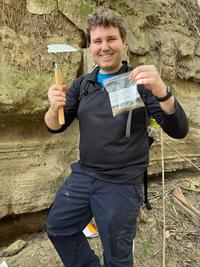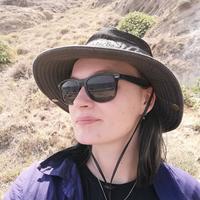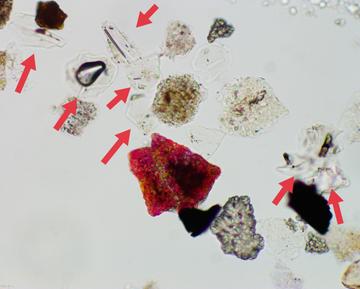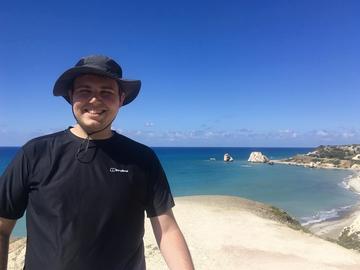
My academic journey started in Scotland, where I am from. I completed my undergraduate degree in Geology and Physical Geography at the University of Edinburgh and was awarded a Masters degree in Earth Sciences in 2022. For my dissertation project I was able to work with a pilot scheme (run by Tweed Forum) in the Scottish borders looking at natural flood management practices, such as swales, re-meandering and re-forestation. I developed a model to measure the effectiveness of re-forestation on reducing peak flows in large flood events. The model essentially measured soil hydraulic conductivity (how well connected the grains were and the pathways between them) across different land cover types – recently forested land or untouched farmland. Then, applying real rain fall data, I used those values in the predictive model.
After completing my degree I started to look for my next steps. I was seriously considering a PhD, but I didn’t really know what that would look like and what graduate study looks like day-to-day, as in how much supervisor contact, how much lab time and access to equipment? It all seemed a bit out of reach.
On Instagram I came across an advert for the UNIQ + graduate access scheme at the University of Oxford. I applied to Professor Vicki Smith’s project titled Reconstructing detailed eruption records. This felt like a very good fit with my interests in natural disasters, plus a chance to work with a new material (volcanic ash; termed tephra) and new scientific techniques. There was a lot of volcanology and igneous petrology in my undergraduate degree in Geology, so it’s always been an area I’ve found interesting. My hope was that the UNIQ+ programme would expand my knowledge and practical skills in a related area, i.e. tephra, whilst also giving me a chance to experience Oxford.
I entered the programme that summer and found straight away that the UNIQ + course was a breathing space to refine my thinking and a space to ask questions about graduate study from an experienced PI and her team (postdocs and students who had been through the DPhil pipeline themselves).
The programme lasted for 6 weeks during which I lived with other students in the scheme at Lincoln College and I worked with Vicki and her team in the Research Laboratory for Archaeology and the History of Art (RLAHA Tephrochronology Lab).
Week 1 was mostly an introduction to Oxford and training workshops in programming and statistics in R with the Doctoral Training Centre. Throughout the six weeks there was an interesting and varied programme for evenings which, as well as social events, included seminars related to graduate study and the application process to Oxford which really helped to demystify the process for me. I particularly remember a really good talk on imposter syndrome. It demystified the invisible barrier that you can feel around these institutions. I wouldn’t have even considered applying to Oxbridge if it hadn’t been for UNIQ +. Oxford now felt like somewhere I could fit in and hopefully thrive.
For my project with Vicki, I learnt how to quantify tephra shard morphologies. A lot of tephra work has focused on the geochemistry of the shards but looking at shape can elevate the standard geochemical analysis and can be used to pinpoint certain shard shapes to certain eruptions. We did a lot of training in different lab techniques – e.g. sample prep, crushing, wet sieving, and sample analysis using the scanning electron microprobe.
After the UNIQ+ course ended I returned to Scotland and then spent the summer working in a whisky distillery in Orkney and I visited some of the great sites there – Skara Brae and the Stones of Stenness Circle and Henge. These sites were breathtaking! I still consider myself to be an Earth Scientist however my experience in the archaeology lab is clearly influencing my choice of weekend getaways and leisure time! A key take-away for me from my time in the lab is the realisation that archaeology is so interdisciplinary, something I hadn’t really appreciated until coming here.
So next steps. I found out about the Doctoral Training Programme whilst on the UNIQ+ course, through discussion with colleagues in the lab. The application process was detailed. I submitted a statement of interest as well as a piece of work, plus the usual version of my C.V. with references, etc. I applied in late December and had an online interview in late February 2023. I was successful and so returned to Oxford for the start of Michaelmas Term in October 2023.
The DTP is fully funded inclusive of tuition and college fees, and it includes a stipend which helps to pay for my accommodation and living expenses. The first year of the DTP is a highly structured programme of training in preparation for the DPhil project. By the end of this first year, I will need to have agreed and confirmed my supervisor and submit my curated project proposal. The DTP first year gives you a lot of flexibility as in the first two terms you can develop and refine your project, talk with numerous academics and so create the best version of your research project proposal. I will be based in the DTC until I hand in my proposal.
I’m already looking forward to starting my DPhil in the School of Archaeology in MT 2024. My topic will centre on the changing volcanism at Campi Flegrei caldera just outside Naples. Whilst on fieldwork there I will of course expand my list of visited archaeology sites when I go to Pompeii and Herculaneum. I can’t wait to get started!
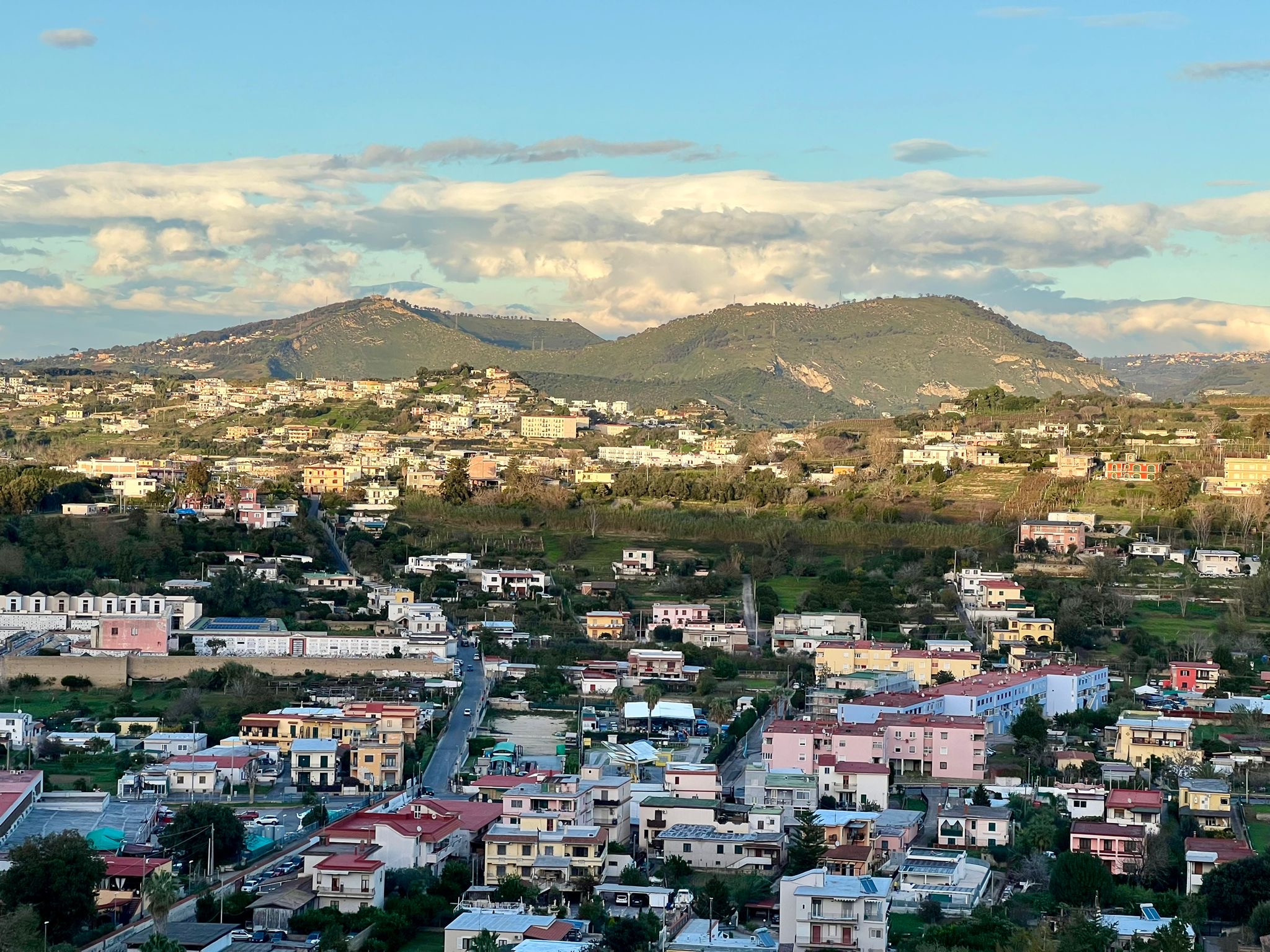
Campi Flegrei Caldera


